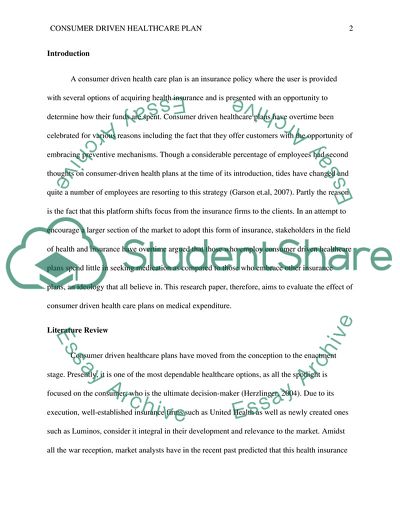Cite this document
(Consumer driven healthcare plan Research Paper Example | Topics and Well Written Essays - 1000 words, n.d.)
Consumer driven healthcare plan Research Paper Example | Topics and Well Written Essays - 1000 words. https://studentshare.org/medical-science/1844083-research-paper-on-consumer-driven-healthcare-plan
Consumer driven healthcare plan Research Paper Example | Topics and Well Written Essays - 1000 words. https://studentshare.org/medical-science/1844083-research-paper-on-consumer-driven-healthcare-plan
(Consumer Driven Healthcare Plan Research Paper Example | Topics and Well Written Essays - 1000 Words)
Consumer Driven Healthcare Plan Research Paper Example | Topics and Well Written Essays - 1000 Words. https://studentshare.org/medical-science/1844083-research-paper-on-consumer-driven-healthcare-plan.
Consumer Driven Healthcare Plan Research Paper Example | Topics and Well Written Essays - 1000 Words. https://studentshare.org/medical-science/1844083-research-paper-on-consumer-driven-healthcare-plan.
“Consumer Driven Healthcare Plan Research Paper Example | Topics and Well Written Essays - 1000 Words”. https://studentshare.org/medical-science/1844083-research-paper-on-consumer-driven-healthcare-plan.


